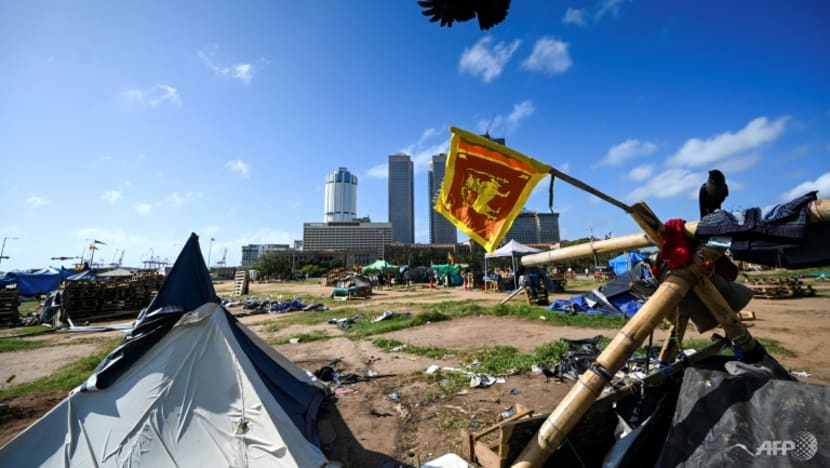
Wed, August 10, 2022
By Idrees Ali and Jonathan Landay
WASHINGTON (Reuters) - As weary U.S. military planners wrapped up the evacuation and pullout from Afghanistan one year ago, officials across the government steeled themselves for intense public scrutiny into how America's longest war ended in shambles with the Taliban retaking power.
But as the United States marks the first anniversary of the withdrawal this month, some U.S. officials and experts say President Joe Biden's administration has moved on without properly assessing lessons from the 20-year war and the Taliban victory.
Nor has there been public accountability for the chaotic evacuation operation that saw 13 U.S. service members killed at Kabul's airport and hundreds of U.S. citizens and tens of thousands of Afghans left behind, they said.
"We need to open up that ugly history book called the 20 years in Afghanistan and see why we fail," said John Sopko, the U.S. special inspector general tapped with tracking some $146 billion in reconstruction aid.
These lessons are especially crucial now as the administration pumps billions of dollars of assistance into Ukraine's fight against Russia, Sopko told Reuters.
U.S. policymakers, however, are now preoccupied with Russia's onslaught against Ukraine and soaring tensions with China, even as the Taliban erase women's rights, harbor al Qaeda militants and execute and torture former government officials.
The Biden administration portrays the pullout and extraction operation - one of the largest airlifts ever - as an "extraordinary success" that wound up an "endless" conflict that killed more than 3,500 U.S. and allied foreign troops, and hundreds of thousands of Afghans.
The evacuation ferried more than 124,000 Americans and Afghans to safety over 15 days. Tens of thousands of Afghans, many of whom worked for U.S. forces, now have resettled in the United States in the largest U.S. refugee operation since the Vietnam war.
To be sure, Biden was left a mess by his predecessor Donald Trump, who committed to completing the troop pullout by May 2021 without processing a massive backlog of visa applications from Afghans who worked for the U.S. government.
"We inherited a deadline in Afghanistan, but not a plan for withdrawal," a National Security Council spokesman said.
But some U.S. officials, experts and private evacuation organizers say the administration has avoided taking responsibility for misreading the speed of the Taliban advance.
The U.S. military and the State Department have been preparing so-called "after-action reviews" on their roles in the withdrawal. But it is unclear if those reports will be made public.
"It's accountability for the Americans that were left behind, the allies that were left behind that are still being hunted down, for the 13 Gold Star families (of slain U.S. troops)," said U.S. Representative Michael Waltz, a Republican lawmaker who commanded special forces in eastern Afghanistan.
Defense Secretary Lloyd Austin sent back the military's initial draft review because he was dissatisfied with the limited insight it provided, two U.S. officials said.
The report is now complete and Austin is reviewing it, one official said. A State Department spokesman could not say when, or in what form, it would release its report.
"We're going to have to take a black eye on our performance over the past year," said another official, who spoke on the condition of anonymity.
'REARVIEW MIRROR'
In December, the Air Force inspector general concluded that no U.S. military personnel would be held accountable for a drone strike in Kabul that killed 10 civilians, including seven children, in the final days of the evacuation.
The Pentagon said it would compensate the family and relocate them. But nearly a year has passed without either happening, though U.S. officials said there has been progress.
A congressional commission approved by Biden to study the history of the U.S. intervention and the pullout has yet to begin work because Senate Minority Leader Mitch McConnell has not named the Republican co-chair.
Afghanistan momentarily returned to the headlines this month after a CIA drone strike killed al Qaeda leader Ayman al-Zawahiri, Washington's first known strike in Afghanistan since U.S. troops left, with Biden giving a televised address to mark the success.
The strike could complicate already difficult talks that U.S. officials are pursuing with the Taliban on releasing billions in foreign-held Afghan central bank assets and ending human rights abuses. The United States also remains Afghanistan's largest humanitarian aid donor.

But over the past year, Afghanistan largely has faded into the background in Washington. Congress has held few hearings to dissect how the U.S. effort there failed and many limited gains in Afghanistan reversed.
Current and former officials say that despite the Zawahiri killing, they remain concerned about the U.S. intelligence gathering capability. And the military has been unable to come to any basing agreements with countries near Afghanistan.
Michael Kugelman, a senior associate for South Asia at the Wilson Center think-tank, said that Washington had not shown a willingness to think about what went wrong in Afghanistan.
"I have been struck that much of Washington has appeared keen to essentially put Afghanistan in the rearview mirror and try to move on," Kugelman said.
(Reporting by Idrees Ali and Jonathan Landay in Washington; Additional reporting by Phil Stewart; Editing by Mary Milliken and Peter Graff)
.jpg)


















